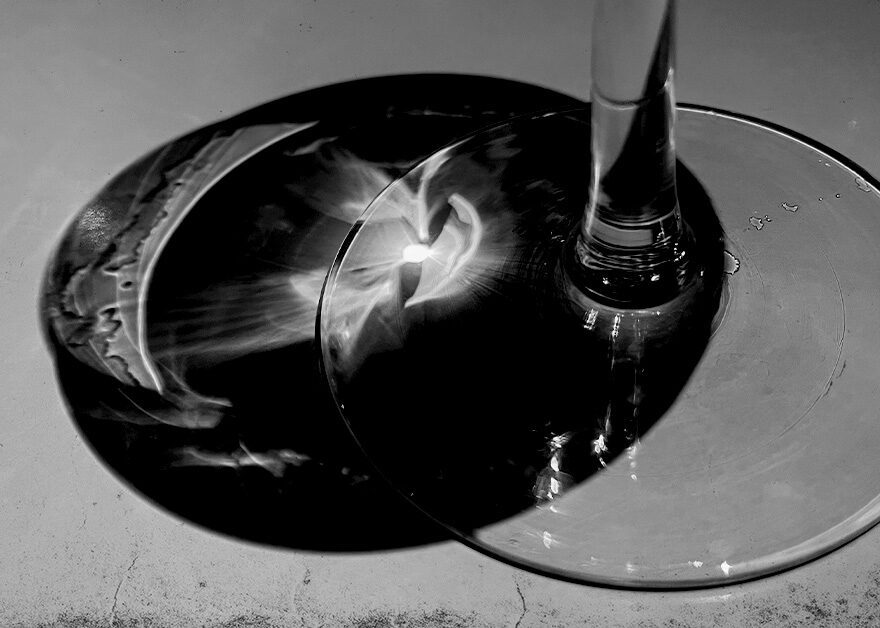
- A large observational study finds associations between moderate drinking, markers of iron accumulation in the brain, and cognitive decline.
- The study found that having just three cans of beer a week is linked to having higher levels of iron stored in the brain.
- Accumulation of iron is also associated with cognitive issues, leading the researchers to hypothesize that drinking promotes cognitive decline.
It has long been understood that the consumption of alcohol can damage the brain. A new, large, observational study suggests that drinking is associated with an iron buildup in the brain, and both are associated with cognitive decline.
The study hints that alcohol consumption may be responsible for the iron buildup, and in turn could be responsible for cognitive decline.
The researchers analyzed existing UK Biobank data for 20,729 people. As with all observational studies such as this, associations may be drawn, but determining causality must be proven by controlled studies. Associations do, however, regularly point researchers to further avenues of exploration.
The corresponding author of the study, Dr. Anya Topiwala, of the Department of Psychiatry at the University of Oxford in the U.K., told Medical News Today:
“I’ve been interested in the possibility of iron being responsible for alcohol-related brain damage since I read a small study in male alcohol-dependent individuals where they observed higher iron. I was intrigued to see if a similar phenomenon occurred in moderate drinkers.”
“My takeaway,” said Dr. Topiwala, “is that elevated iron is a possible mechanism by which alcohol could damage the brain and lead to memory problems. Understanding the mechanism of damage is of course important if you want to be able to intervene in patients.”
The study was published in PLOS Medicine.
Alcohol, brain scans, and cognitive tests
Of the individuals whose records were analyzed in the study, 48.6% were female, and the mean age was 55 years.
Individuals self-reported their alcohol intake on questionnaires, and researchers assessed cognitive function using a series of executive function tests, including a trail-making test, fluid intelligence with puzzle tasks, and measured reaction time with a task based on the card game Snap.
Never-drinkers made up 2.7% of the overall sample.
The average intake of alcohol was around 17.5 units per week.
This is the equivalent of a bit over seven cans of beer, about 8.5 medium glasses of wine, or just under 18 shot glasses of gin, rum, vodka, whisky, tequila, or sambuca.
The researchers assessed the presence of iron in the brain indirectly, using MRI scans. The primary areas of interest for the researchers were regions in the basal ganglia linked to emotional, cognitive, and movement-related functions.
A few beers will do it
The researchers found that individuals drinking seven or more alcoholic units per week — a moderate level of consumption — exhibited markers of increased accumulations of iron in their brain.
“In this study,” said Dr. Topiwala, “we didn’t find evidence for higher iron at four units and above, only seven units and above.” This would be about three beers in a week.
“In a separate study we did, however, we found linear harmful associations — as in [there was] no evidence for any safe level over zero [alcohol units],” she added.
The current analysis revealed that those with higher levels of iron in the brain were also more likely to have had cognitive issues.
“It is well-known that alcohol causes damage to the brain. The direct cytotoxic effects of alcohol on the brain are known. The authors bring another potential mechanism for this phenomenon through iron accumulation. Whether iron accumulation is directly contributing to the deleterious effects of alcohol on the brain is not well known, but is proposed in this paper.”
— Dr. Hossein Ardehali, professor of medicine and cardiology at Northwestern University’s Feinberg School of Medicine.
A hint, perhaps for further research
Dr. Hossein Ardehali, who was not involved in the study, told MNT that even though “This is an observational study, [it] includes a large number of patients. The authors did their best with the observational data that they had available.”
He pointed out, however:
“There are several limitations with this study, and some of the conclusions may be too strong. For example, it is possible that alcohol may cause brain damage, and damaged areas of the brain then accumulate iron. It may not be that alcohol leads to iron accumulation, and that causes brain damage. The causal association for this observational trial is not well established.”
“I am a firm believer,” Dr. Ardehali said, “that iron accumulation in the brain is a marker — and very likely a driver — of cognitive decline and a risk factor for neurodegenerative disorders, like Alzheimer’s and Parkinson’s disease. Alcohol consumption, in addition to its direct effects on the brain, can also lead to brain damage through iron accumulation.”
“It is possible that brain iron accumulation in drinkers is a driver of cognitive decline. But it is also possible that iron accumulation is just a marker of brain damage as a direct result of alcohol on the brain. So, the complete mechanistic role of iron in cognitive decline in alcohol drinkers remains a matter of debate.”
— Dr. Hossein Ardehali
Source: Read Full Article
